@ Gunu - that Kangna dhoondho sig is LOVELY 👏 You already know how obsessed I am with your bluish colorings,and especially with this scene it so perfectly highlights the makeup, jewelry, sindoor and mehndi so everything stands out and comes to life Rock on behna, can't wait to see more like it!
@ Janu - I just love getting you all riled up, can't you tell by now 🤣 If it gets you to wake up and write these longgg ass thoughtful posts, it's well worth your sad puppy dog eyed emoticons 😆
Re: the dialogue from the Sanjeevani episode, that's actually
straight from RCM's Lanka Kand:
Jaaihu Avadh kavan mukh laayi | naari hetu priya bhai gavaayi ||
The same is true of Hanumanji's words about Indrajeet in his men not being strong enough to carry Sheshnag, who bears the weight of the world - guess we can't credit or question the show for either, because in both cases it was just being faithful to its source! Anyway, this chaupai I quoted is exactly the same dialogue you mentioned from the scene, except RSji puts it in prose - both ways, it means "how will I face everyone in Ayodhya after sacrificing my brother for the sake of my wife?" The verses, at surface level, actually get harsher depending on how you interpret them (the very next line goes "baru apayash sahateyu jag maahi, naari haani vishesh kshati nahin" meaning "it's ok if I'd have to bear infamy in society because of losing my wife, that's not so big a deal anyway"). As I said above, RSji was loyal to the texts he drew inspiration from when it came to dialogue, even when they got risky like Sita's words to Lakshman when she was sending him after Ram right before her abduction, or this particular instance; so if you want to express doubts and resolve them, it's best to take it straight to his source rather than considering the show. That is because you can provide more explanations in print (thanks to the voice of the 3rd person narrator) than you can enact without through the characters themselves. And therein lies the resolution to your doubt. This whole set of verses on Shri Ram's lament opens as follows:
Uhaan Ram Lakshmanahi nihaari | Bole vachan manuj anusaari
Meaning "there, Ram looked at Lakshman and spoke words befitting a mortal". Your third person narrator is saying that all these things Ram's about to say are totally ungodly, they're the laments of a grief-stricken mortal and part of his human leela - not his divine educational agenda. RSR doesn't have a narrator put forth this disclaimer, but the opening lines of "Mere Lakhan Dulaare" are along the same lines. As I've said before with regard to Ram and Sita's virah leela in spite of their knowledge of their true selves - and also w.r.t. RadheShyam's similar pastimes - a lot of it pure leela, wherein God is expressing human emotions with more depth and intensity than humans themselves, purely to invoke the passion and fervor of his devotees. It's about getting an overall feeling, not learning a specific fact, so such leelas are better to sit back and soak in the emotions than analyze word for word. As I had jokingly said back then, there were no ghazals and sappy tv shows for common folks to drown in as an outlet for their own emotions or merely for entertainment, so maybe God and the poets who wrote about him just wanted to fill the void 😆
Alternately, you could just look at that one line and understand that while Sita was abducted, but alive and unharmed because of Ravan's curse, Lakshman was close to dead, and he merely meant that his
separation from Sita didn't warrant
loss of life. In other words, it's not a brother being greater than a wife, but death being worse than abduction. I think this addresses any surface level issues about the line that a casual reader/viewer might have, but a devotee can grasp the aforementioned explanation about human leelas also and see it in a different light. Either way, hope it helped!
Edited by lola610 - 12 years ago


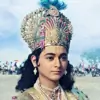
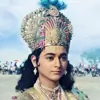



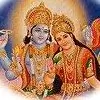





 You came back after like, a bluemoon, whereas I've been here all along and was commenting on Gunu's creations too. Ask her if you want!
You came back after like, a bluemoon, whereas I've been here all along and was commenting on Gunu's creations too. Ask her if you want!
 Just watch, one day I'm going to hack in to your computer and get my revenge, muahahahahaha!
Just watch, one day I'm going to hack in to your computer and get my revenge, muahahahahaha! ). I kind of figured this might be a line from RCM. I think Tulsidasji incorporated a lot of the customs of his time into his work, and often this resulted in extremely beautiful and devotional themes in the epic, whereas at other times it made it seem like the status of a wife was lower than that of other family members. I mean, the status of women in the 16th century was different from how women are generally portrayed in our puranas like Valmiki Ramayana or Mahabharat, where there are fiercer, more outspoken, and generally portrayed as equal to the men. There is more submissiveness in RCM and I've noticed that now more than before, since I'm reading many chapters of both the epics side by side. I think this may have influenced Tulsidas to write Ram's lament, but it's still not a line that makes me 100% comfortable because I do not think the real Shri Ram would ever have undervalued the pain and suffering of Sita Ma even when his brother was on the deathbed.
). I kind of figured this might be a line from RCM. I think Tulsidasji incorporated a lot of the customs of his time into his work, and often this resulted in extremely beautiful and devotional themes in the epic, whereas at other times it made it seem like the status of a wife was lower than that of other family members. I mean, the status of women in the 16th century was different from how women are generally portrayed in our puranas like Valmiki Ramayana or Mahabharat, where there are fiercer, more outspoken, and generally portrayed as equal to the men. There is more submissiveness in RCM and I've noticed that now more than before, since I'm reading many chapters of both the epics side by side. I think this may have influenced Tulsidas to write Ram's lament, but it's still not a line that makes me 100% comfortable because I do not think the real Shri Ram would ever have undervalued the pain and suffering of Sita Ma even when his brother was on the deathbed.

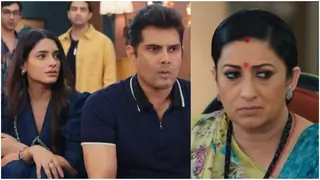









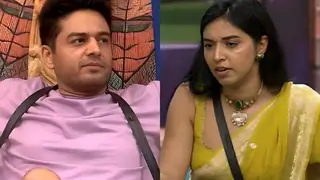


979